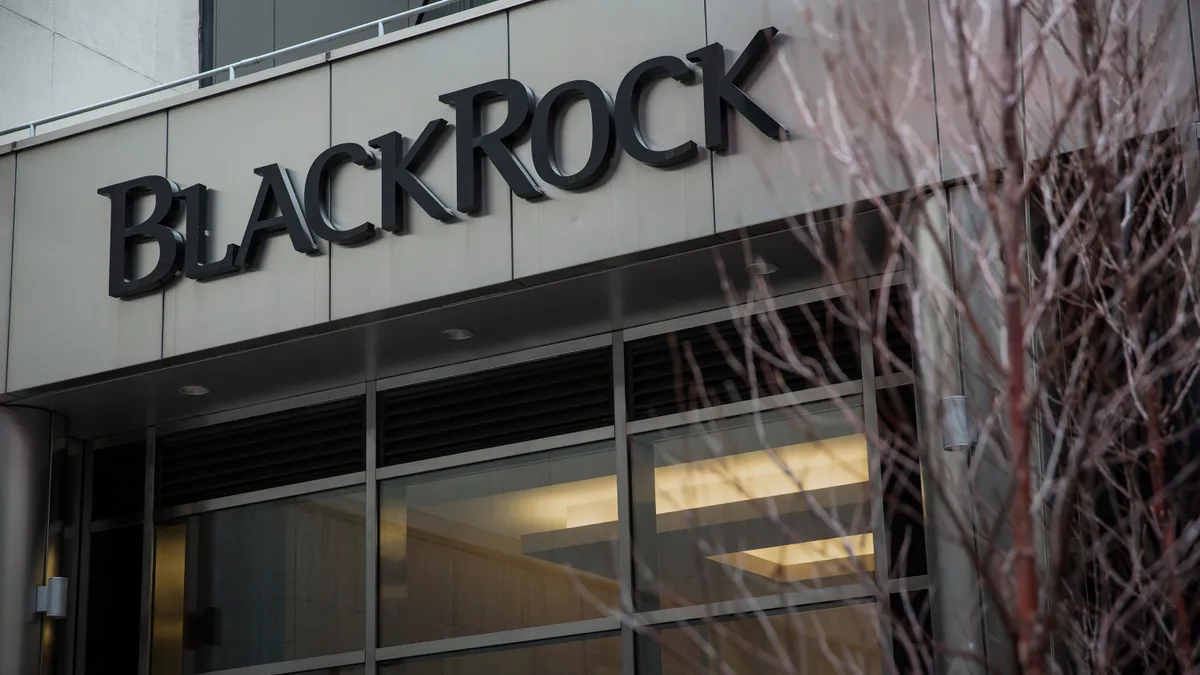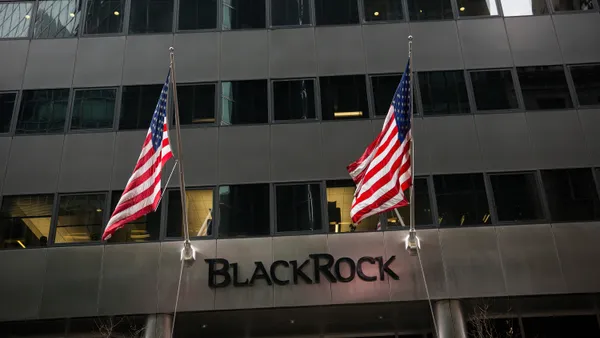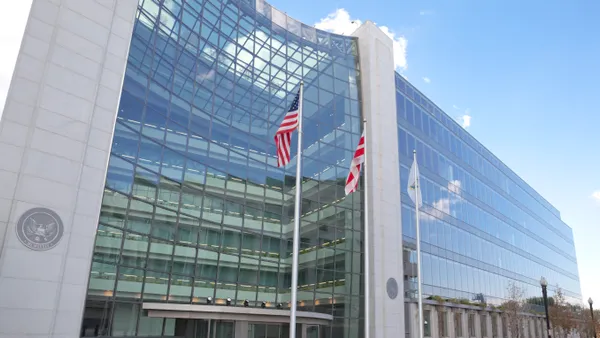Dive Brief:
- Indiana’s state treasurer named BlackRock as the first firm on the state’s ESG watchlist Friday, pending further action by the Indiana Public Retirement System. The asset manager was targeted for prioritizing “risky ESG engagement over its fiduciary duty to its clients,” according to the state treasurer’s office.
- Daniel Elliott’s office investigated BlackRock under an Indiana law signed last May requiring his office to examine any service provider it has “reasonable cause” to believe has made an ESG commitment.
- A report issued by the Hoosier State the same day cited BlackRock’s latest annual securities filing, where the firm acknowledged that mounting ESG scrutiny could affect its revenues, and pointed to its status as a signatory to the United Nations-backed Net Zero Asset Managers initiative as evidence of its ESG commitments.
Dive Insight:
In response to Elliott’s inquiries, however, BlackRock said the fund it manages for INPRS is a passively managed fund indexed to sovereign debt, according to the report.
“Contrary to the Treasurer’s assertion, BlackRock has been singularly focused on delivering performance for INPRS, consistent with their objectives,” a firm spokesperson said Tuesday in an emailed statement to ESG Dive.
Elliott argued in the report that — through BlackRock’s acknowledgement that varying ESG views and regulations could represent a risk and engagement with NZAM — “ESG engagement is so fundamental to BlackRock’s mission as to touch its partnership with INPRS and, indirectly, INPRS assets.”
The treasurer said this marks the beginning of the state’s reevaluation of BlackRock’s role in its pension system.
“ESG commitments hurt investments when employed by financial institutions and we must protect our public servants from having their hard-earned incomes affected by ESG decisions made by large corporations,” Elliott said in the release.
In response to Elliott’s questions, BlackRock said the index for the INPRS account “does not have an ESG component or screen” and that its Securities and Exchange Commission annual filing “is irrelevant to its relationship with INPRS assets,” according to the report. The firm told the treasurer’s office that the filing, “simply highlights the reality that there are increasingly divergent views among clients, policy makers and regulators about how BlackRock approaches sustainability and ESG … and has no bearing” on its management of INPRS assets, per the report.
BlackRock also said its participation in NZAM or any other outside groups “never overrides [it’s] duties to [its] clients,” according to the report. A BlackRock spokesperson told ESG Dive the company has invested “approximately $95 million” in the state and is “helping more than 415,000 Indiana residents retire with dignity.”
“We take direction from our clients, as our business is grounded in our fiduciary obligation to provide our clients with choice,” the spokesperson said.
BlackRock, the nation’s largest asset manager, is a favorite target of the U.S. anti-ESG movement and is on restricted lists in multiple states. However, Indiana’s law differs from outright restricted lists on the books in states like Florida, Texas and Oklahoma — among others — which have increasingly shown economically costly and/or unpopular with voters. While BlackRock’s inclusion on such lists in other states restricts its ability to work with those states and municipalities, Indiana’s watchlist does not immediately require suspension of services.
The law requires state pension fund managers to not enter, modify, amend or continue contracts with firms with ESG commitments. INPRS has 180 days from receiving the treasurer’s report to switch service providers or determine if there is a comparable provider.
BlackRock renewed its contracts with Oklahoma’s pension system in May, after an Oklahoma District Court judge paused the law earlier in the month.












